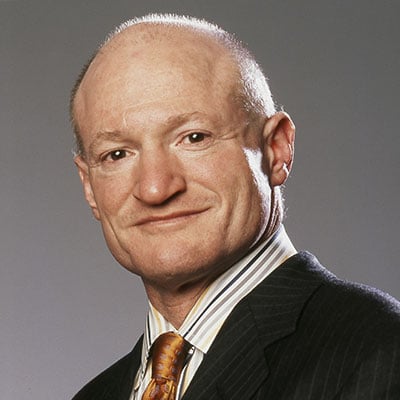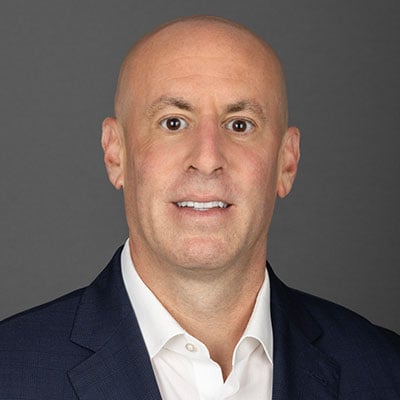Ergen Makes Peace with LightSquared's Ch. 11 Exit
Dish Network Corp. Chairman Charlie Ergen on Tuesday formally ceased opposing LightSquared Inc.’s departure from bankruptcy protection now that the wireless venture has come up with $1.5 billion in fresh financing to repay his hotly disputed debt claim in cash.
LightSquared’s proposal to cash out Ergen’s claim for roughly $1 billion in debt plus interest has rendered his objections to the restructuring strategy moot, according to court papers filed on behalf of his personal investment vehicle SP Special Opportunities LLC.
“SPSO hereby withdraws the objection,” his lawyers wrote.
Expelling Ergen from the reorganized LightSquared was a longstanding goal of the debtor, which worried about his potential influence as the head of a major wireless competitor, and quieted one of the final remaining obstacles to ending what has been a long and enormously costly bankruptcy.
A hugely promising startup backed by hedge fund magnate Philip Falcone, LightSquared sank into Chapter 11 in 2012 when the Federal Communications Commission rejected its proposed nationwide wireless network over concerns about interference with global positioning technologies.
Since then, seven restructuring proposals have fizzled, one rejected by U.S. Bankruptcy Judge Shelley Chapman and six tentative agreements that never gained enough creditor support to advance.
The latest Chapter 11 plan, which emerged after months of fervent closed-door negotiations, salvages a 44 percent equity stake for longtime LightSquared backer Harbinger Capital Partners LLC while splitting up the remaining equity interests among Fortress Credit Opportunities Advisors LLC, Centerbridge Partners LP and JPMorgan Chase & Co.
Never before had Ergen, LightSquared’s largest single creditor, been offered full repayment in cash until Jeffries Finance LLC stepped in with an eleventh-hour offer last week to finance a new second-lien lending facility that ensures his full repayment when the plan goes effective.
Previous versions would have paid off some of his claim with junior takeback paper rather than cash, which Ergen said would treat him unfairly. For providing the financing, Jeffries would reap a $174 million commitment fee.
Ergen's attorney, Rachel Strickland of Willkie Farr & Gallagher LLP, said last week that her team had to evaluate "whether we really believe we’re unimpaired in the legal and equitable sense." Her statement drew a response from Judge Chapman, who has consistently urged the parties to remove Ergen from the equation.
"For over two years, you've been asking to be paid in full in cash. The company is offering to pay you in full and in cash,” the judge said. "Theres not that much more to discuss.”
Ergen is still not receiving a liability release under the revised plan, leaving him exposed to subsequent actions seeking to disgorge his cash-out. Last year, Judge Chapman ruled that SPSO’s claim could be partially wiped out due to Ergen’s stealthy acquisition of LightSquared’s debt on the secondary market, which he accomplished before anyone knew he controlled the fund.
How much, if any, of his claim should be subject to equitable subordination has never been decided. Harbinger had sued SPSO, claiming that Ergen schemed to infiltrate LightSquared’s capital structure and position Dish as a potential buyer for valuable wireless spectrum assets.
After weeks of trial, lawyers are scheduled to deliver their closing arguments on the plan Thursday. Jockeying for control of the reorganized LightSquared has continued throughout the trial, with Solus Alternative Asset Management LP and then Cerberus Capital Management LP bidding for the right to cash out progressively larger chunks of Ergen’s claim as late as last week.
Whether the plan treats other investors fairly depends on how much LightSquared’s spectrum assets are worth with its renewed licensing application still sitting before the FCC. With no way to know how, or when, the FCC will rule, the valuation question has been fraught with conflict. Valuation speaks directly to creditor recoveries — the stronger the company, the more debt it can support and the less pain for junior creditors and stockholders.
Solus, a creditor and preferred stockholder, has floated a rival reorganization plan to take a controlling equity stake in exchange for providing $742 million in bankruptcy financing. Overvaluing LightSquared could allow it to raise more new debt, which could become problematic in the future — even paving a path back into bankruptcy — if the assets don't prove lucrative enough.
Mired in mediation, LightSquared began inching toward a consensual exit from bankruptcy after the results of a government auction in November revealed huge market demand for spectrum, a relatively finite asset that seems to only increase in value. In the auction’s wake, stakeholders began competing to provide fresh capital and take on equity risk.
LightSquared is represented by Matthew S. Barr, Alan J. Stone, Michael L. Hirschfeld and Andrew M. Leblanc of Milbank Tweed Hadley & McCloy LLP. LightSquared’s special committee is represented by James H.M. Sprayregen, Paul M. Basta and Joshua A. Sussberg of Kirkland & Ellis LLP.
Ergen is represented by Rachel C. Strickland, Tariq Mundiya, James C. Dugan and Norman P. Ostrove of Willkie Farr & Gallagher LLP.
Solus is represented by Robert J. Stark, Jacob T. Beiswenger, Steven B. Levine, Sunni P. Beville, James W. Stoll, Jonathan D. Marshall and Brian T. Rice of Brown Rudnick LLP.
Cerberus is represented by Adam C. Harris of Schulte Roth & Zabel LLP.
The case is In re: LightSquared Inc., case number 1:12-bk-12080, in the U.S. Bankruptcy Court for the Southern District of New York.
REPRINTED WITH PERMISSION FROM THE MARCH 25, 2015 EDITION OF LAW360 © 2015 PORTFOLIO MEDIA INC. ALL RIGHTS RESERVED. FURTHER DUPLICATION WITHOUT PERMISSION IS PROHIBITED



